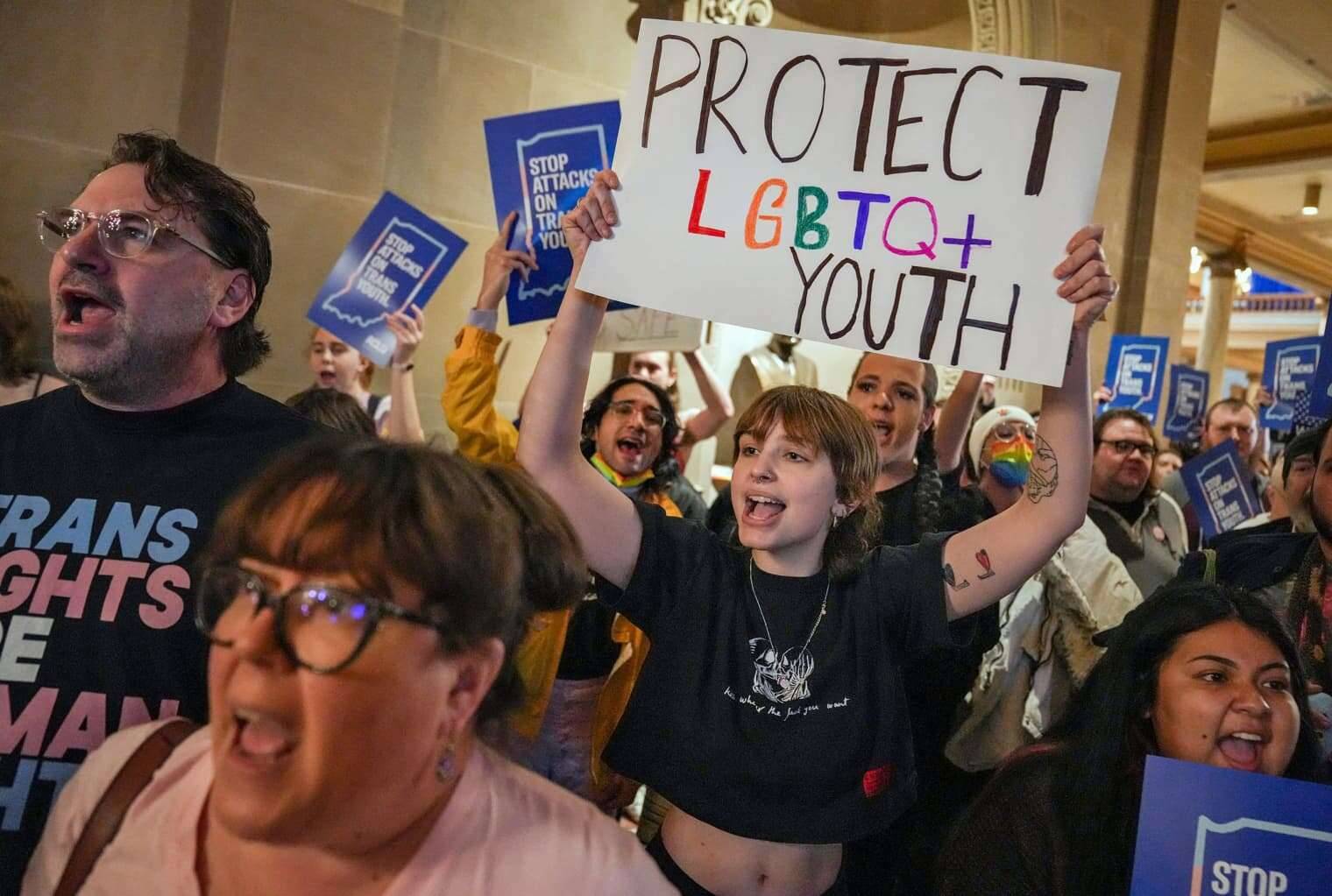A record number of bills aimed at restricting the rights of LGBTQ people have become law in the past three years, but the majority of those that have faced legal challenges haven’t heldup in court, according to an NBC News analysis, legal experts and the American Civil Liberties Union, which has filed legal challenges against some of the laws.
Just this year, state representatives introduced 491 bills aimed at restricting LGBTQ rights, with 77 of them becoming law, according to the ACLU. The majority of bills proposed and passed focused on limiting the ability of transgender youth to receive gender-transition care and play school sports. In the past year, lawmakers in at least 16 states also introduced bills to restrict drag performances.
Over the past few years, about two dozen states have passed nearly 50 laws targeting transition-related care, transgender student athlete participation and drag performances. The majority of those measures have not yet faced lawsuits, but most of those that have faced litigation have been temporarily or permanently blocked by judges.
In a national first last month, a federal judge overturned Arkansas’ ban on gender-transition medical care, including puberty blockers and hormone therapy, for minors in the state, declaring it unconstitutional.
Of the 20 states that have passed into law restrictions on transition-related care for transgender minors, 11 have faced lawsuits. Five — Arkansas, Alabama, Indiana, Kentucky and Florida — have had their restrictions completely or partially blocked by federal judges who ruled they violated the 14th Amendment’s equal protection clause. Oklahoma’s has been iced by a legal agreement while litigation continues.
Tennessee’s care restriction was temporarily blocked by a federal court last month, but an appeals court lifted the injunction Friday, marking a rare loss in a series of legal victories for advocates fighting the transgender bans.
The four other lawsuits over similar restrictions in Georgia, Idaho, Montana and Nebraska are still pending, according to tracking by the Movement Advancement Project, an LGBTQ think tank, and nonprofit organizations in four more states have promised they will sue to stop the laws.
“The elephant in the room should be noted at the outset. Gender identity is real. The record makes this clear,” Judge Robert Hinkle wrotein a scathing order granting a preliminary injunction against Florida’s ban on gender-transition treatment for minors. Hinkle, whose narrow ruling applies only to the three plaintiffs who sued, added that the state admitted “that pushing individuals away from their transgender identity is not a legitimate state interest.”
“Any proponent of the challenged statute and rules should put up or shut up: do you acknowledge that there are individuals with actual gender identities opposite their natal sex, or do you not? Dog whistles ought not be tolerated,” Hinkle wrote in his order.
Twenty-two states have passed laws that bar transgender student athletes from participating on school sports teams that align with their gender identities, and judges last year temporarily blocked three of those in Idaho, West Virginia and Utah pending the outcome of litigation, according to the Movement Advancement Project. A federal judge in Montana also permanently struck down the state’s ban on transgender women playing on collegiate sports teams in September.
Laws that explicitly restrict drag shows have been passed in two states, Montana and Tennessee, though an additional four states — Arkansas, Florida, North Dakota and Texas — passed laws that regulate “adult” performances, which LGBTQ advocates say could be used to target drag performers. Last month, federal judges declared Tennessee’s restriction unconstitutional and temporarily blocked Florida’s. Three Montanans sued the state Friday over its drag-restriction law.
Paul Smith, who successfully argued the 2003 landmark Supreme Court case Lawrence v. Texas, which found the U.S.’s remaining sodomy laws unconstitutional, said the repeated victories for LGBTQ people and advocates are “a sign that these laws are mostly being thought up based on their appeal to a certain frenzied group of people in the country who were very excited about picking on LGBTQ people right now, not based on their legal merits and sustainability.
“Take a law that says, you can’t have a drag show. It’s hard to imagine an easier First Amendment case to win, because it’s just plain content censorship,” he said. “And there’s not going to be any evidence that is harmful to somebody.”
Smith, a professor at Georgetown Law, said the cases regarding restrictions on transition-related care are more complicated, but the wins still make sense, because in those cases the care is supported by the adolescents, their parents and doctors, and by expert testimony.
The Alliance Defending Freedom, a conservative Christian legal advocacy group involved in many of the statutory battles defending state laws that restrict LGBTQ rights, isn’t fazed by the recent setbacks.
Matt Sharp, a top lawyer at ADF who drafts model legislation on the group’s behalf, said he expects issues dealing with transgender athletes and medical care to reach the Supreme Court. In an interview, Sharp compared judges ruling in favor of allowing gender-affirming care for transgender minors to courts upholding forced sterilization for disabled individuals a century ago.
“I think it’s always worth stepping back and remembering the courts get it wrong sometimes,” Sharp said. “It was about 100 years ago that the Supreme Court upheld forced sterilization for individuals with mental disabilities. It was a wrong decision. And thankfully, both the courts and the medical community recognized the damage that they were doing to a vulnerable population and corrected that mistake. Similar here, these are courts that are struggling now.”
Most of the LGBTQ advocates’ recent legal wins are not yet done deals, and legal experts expect some of them to reach the Supreme Court.
Smith mentioned Arkansas’ restriction on transition care for minors as a high court possibility. The state’s attorney general, Tim Griffin, has already appealed the recent decision overturning the law. A Supreme Court showdown, however, would be years away, as the case would need to go through appellate courts first.




No comments yet
Be the first to share your thoughts!